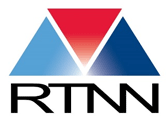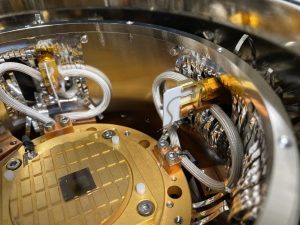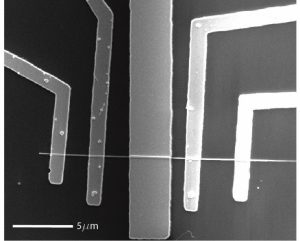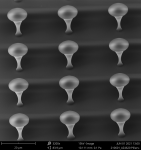
A big thank you to everyone who submitted an image in the 2021 Image Competition. We are excited to announce the winners. These images were submitted as part of the annual NNCI Image Contest, There’s Plenty of Beauty at the Bottom.
Most Stunning
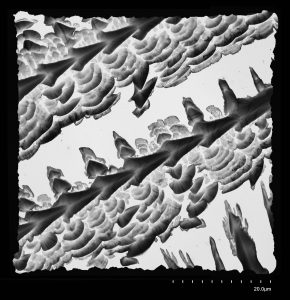
Beautiful Mistake
Aaron Bell and Jin Nakashima, NC State University
This was a negative stain that went wrong (but “oh so right”). We’re guessing that there was something in the buffer that made the uranyl acetate precipitate into these amazing shapes. The specimen itself was unusable for scientific purposes but the images themselves were quite striking.
Most Whimsical
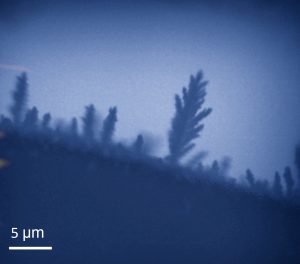
Tree Under Night Sky
Sreekiran Pillai, NC State University
Image captured from the edge of a glass slide coated with icephobic material. The ice grows on the uncoated edge and propagates away from the surface, in a shape of which is identical to pine forests.
Most Unique Capability
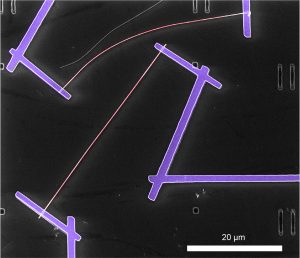
Sunlit Nanowires
Samuel Bottum, UNC Chapel-Hill
This image depicts a device fabricated to measure the photovoltaic properties of single multijunction silicon nanowires. This process involves making metal contacts (purple) to silicon nanowires (red) on a marker pattern (grey numbers), which are etched into the substrate. Each device holds ~20 nanowires with two contacts to each wire. The process to make this device involves many CHANL capabilities, including e-beam lithography, e-beam evaporation, DRIE, and SEM.
